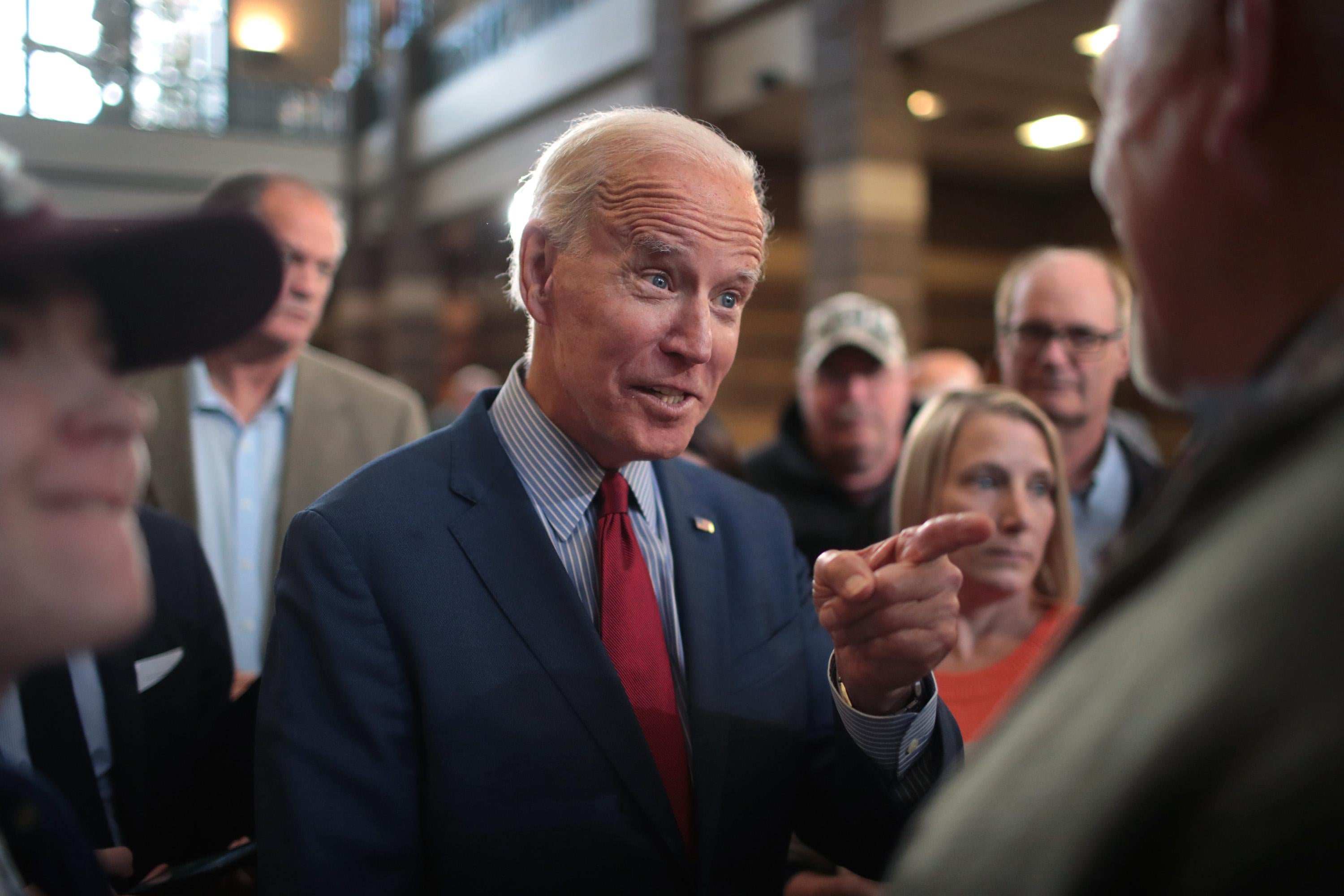This summer, former Vice President Joe Biden did the kind of thing you might do if you’ve repeatedly faced accusations of lifting sentences and failing to properly cite sources: He got some plagiarism-detection software. According to filings that the Federal Elections Committee released last week, Biden’s presidential campaign spent $4,200 beginning on July 10 for iThenticate’s plagiarism prevention services. This was roughly a month after the campaign confirmed that it had unintentionally used language from other sources in its climate and education proposals without giving due credit.
Josh Nelson, vice president at the CREDO social change group, was the first to point out in June that the Biden climate plan contained language borrowed without attribution from environmental groups and unions. For example, a line from Biden’s climate plan read, “Carbon capture, use, and storage (CCUS) is a rapidly growing technology that has the potential to create economic benefits for multiple industries while significantly reducing carbon dioxide emissions,” while a 2017 letter from the Blue Green Alliance read, “Carbon capture and sequestration (CCS) is a rapidly growing technology that has potential to create economic benefits for multiple industries while significantly reducing carbon dioxide (CO2) emissions.” Nelson also pointed out that Biden’s climate plan also lifted language from the Carbon Capture Coalition, which counts oil and coal companies like Shell among its members, and the Daily Caller found further examples of identical language. The Washington Post subsequently discovered that Biden’s education plan included a sentence copied verbatim from the XQ Institute, an organization funded by Laurene Powell Jobs aiming to “disrupt” high schools.
Though the Post and Politico found examples of Kamala Harris and other candidates also lifting language without attribution, the plagiarism accusations against the Biden campaign received the most attention. This was partly because of Biden’s long history of neglecting to cite his sources. In 1987, Biden ended his first presidential bid after it was discovered that he had essentially copied sections of a speech from U.K. Labour Party Leader Neal Kinnock during his closing statements at a debate. Further reporting revealed that this wasn’t the first time Biden had stolen language from another politician, and that in 1965 he failed a class at Syracuse University College of Law after he neglected to properly cite large paragraphs of text he took from another law review article in one of his papers.
Asked about the iThenticate expenditure, a Biden campaign spokesman said in a statement, “This is commonly used software and when it became apparent there would be a double-standard in coverage, we invested accordingly.” The campaign did not elaborate on how the software is being used.
The iThenticate service that Biden’s current presidential campaign has been using matches a submitted text against billions of webpages and academic works, and then provides a percentage score indicating how similar the language it to that of other sources. The FEC report suggests that the campaign did not start paying for the software until after the plagiarism reports in June. The Biden campaign paid for the service in $300 installments from July until September, when the filing period ends. According to the iThenticate website, $300 will get you three credits, each of which is good for a submission of 25,000 words or less. The website does not name the Biden campaign or any other political campaigns in its list of customers, but does advertise that the Department of Justice, the Department of Energy, and the National Institutes of Health have used the service. The company did not reply to a request for comment. (Pete Buttigieg’s campaign spent $300 on iThenticate in June, and it’s possible that other campaigns could have used similar tools without having to report the expenditure as a separate item.)
Plagiarism-detection software is surely helpful amid the constant scrutiny of a presidential primary, but it can’t solve every problem. As some commentators argued in June, the plagiarism was likely just a sign of sloppiness by campaign staff. What was actually revealing was that Biden was looking to a coalition with ties to the coal industry for parts of his climate plan and a Silicon Valley–backed, charter school–friendly project for his education plan. That’s the thing about catching someone lifting others’ words: You get a glimpse of where their ideas came from.
Future Tense is a partnership of Slate, New America, and Arizona State University that examines emerging technologies, public policy, and society.
